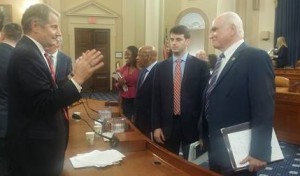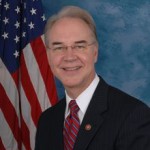American Health Insurance Is Upside Down
Writing in The Week, Ryan Cooper shares a chilling story about an Obamacare Gold-level health insurance policy that let its beneficiary down when he needed it most:
Stewart is 29 years old, and was pursuing his Ph.D in American history at Texas Christian University until ill health forced him to withdraw. He lives in Ft. Worth, Texas, with his wife of six years, who is a junior high school teacher in a low-income district. They own their home. Before he came down with complications from cirrhosis caused by autoimmune hepatitis, he says he led a scrupulously healthy lifestyle — he does not drink or do any other non-medical drugs, he says, and was a devoted hiker before disaster struck. And he was insured — indeed, he had a gold plan from the ObamaCare exchanges, the second-best level of plan that you can get.
But now he faces imminent bankruptcy and possibly death.
(Ryan Cooper, “This is How American Health Care Kills People,” The Week, January 14, 2017.)








